A public discussion on proof in cases of sexual violence took place at the UBA’s office
A public discussion "Partnership for change: shifting the burden of proof in cases of sexual violence" was held on June 20, 2023 at the office of the Ukrainian Bar Association (UBA).
The event was organized by the Office of the Vice Prime Minister of Ukraine for European and Euro-Atlantic Integration. In addition to the UBA, the partners of the event were the Government Commissioner for Gender Policy, the NGO "UA Experts", and the Response&Prevention socio-legal project, with the support of the United Nations Population Fund (UNFPA).
The panelists analyzed the experience of response of state and public institutions to cases of sexual violence, the effectiveness and targeting of assistance provided by international partners, and also discussed practical steps for comprehensive support for victims and the development of effective tools for compensation for harm to victims.
The event was moderated by Anastasia Didenko, senior lawyer at LCF Law Group, the UBA member, member of the Ukrainian Women Lawyers Association "JURFEM".
The discussion began with welcoming words from Kateryna Levchenko, the Government Commissioner for Gender Policy, Dmytro Lubinets, the Ukrainian Parliament Commissioner for Human Rights, and Sergiy Nizhynskyi, CEO of the NGO "UA Experts".
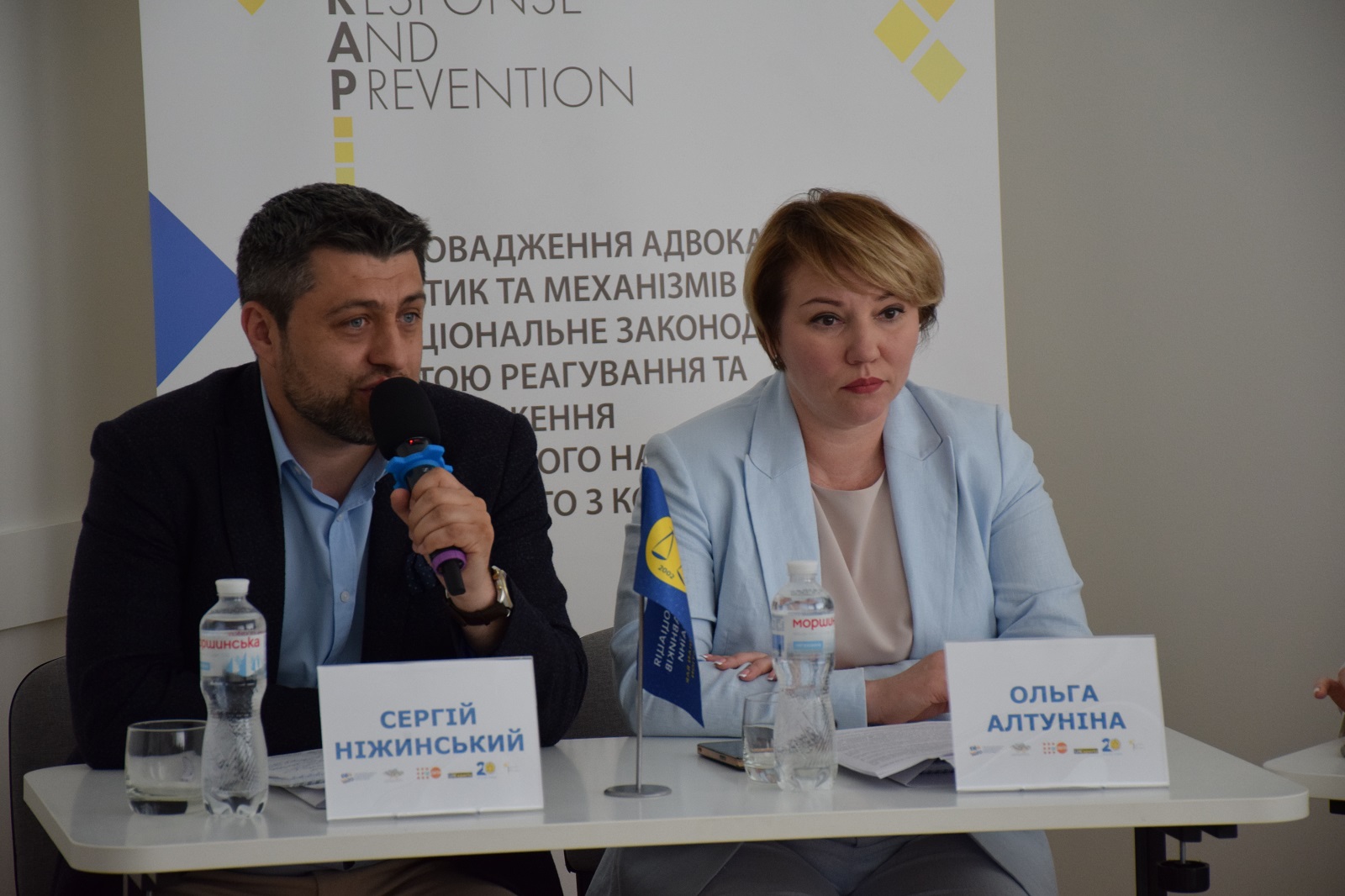
Sergiy Nizhynskyi emphasized that the event is dedicated to the interaction of competent authorities with each other and the involvement of public organizations and those individuals who work out key algorithms for adopting certain decisions for the protection of rights, potential reparations and, most importantly, the defense of victims.
According to Kateryna Levchenko, the discussion meets Ukraine's obligations under the Council of Europe Convention on Preventing and Combating Violence Against Women and Domestic Violence (Istanbul Convention).
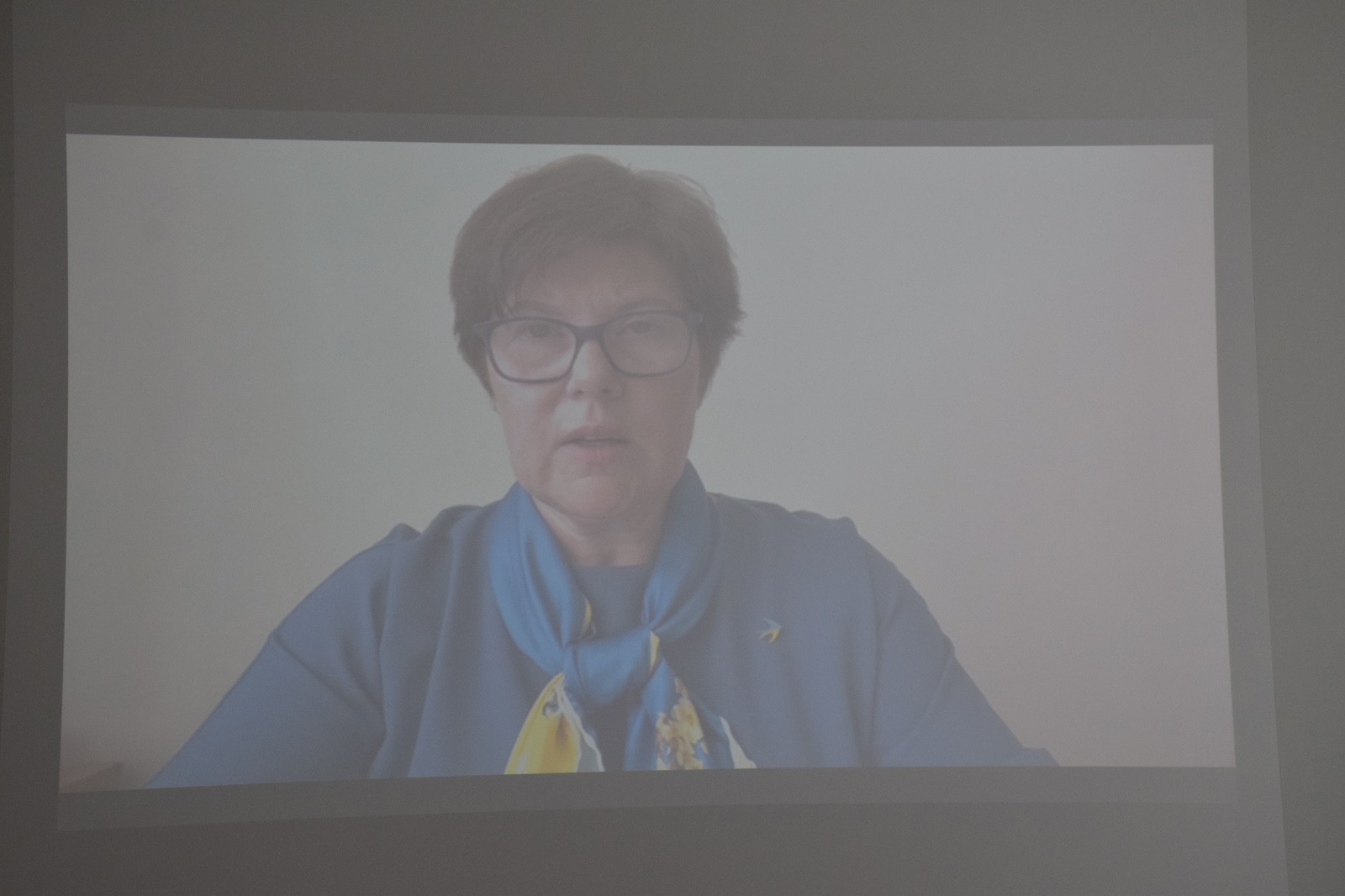
"The question is not simple, because it concerns changes in this system of timely procedural law. From our point of view, development should take place step by step in order to ensure a real transfer of the burden of proof from the injured party to the accused," said the Government Commissioner for Gender Policy.
Dmytro Lubinets said that now the task of the Ombudsman's Office is to draw attention to the most brutal and inhumane crime committed by the Russian invaders in the temporarily occupied territories of Ukraine — sexual violence. According to him, the aggressor country’s soldiers commit sexual violence against everyone whom they can actually hold captive in these territories.
"We record the facts of sexual violence against the civilians and the military, namely prisoners of war. We also note that sexual violence occurred both against women and against men and children. The age of the officially recorded youngest victim is 4 years old," the official said.
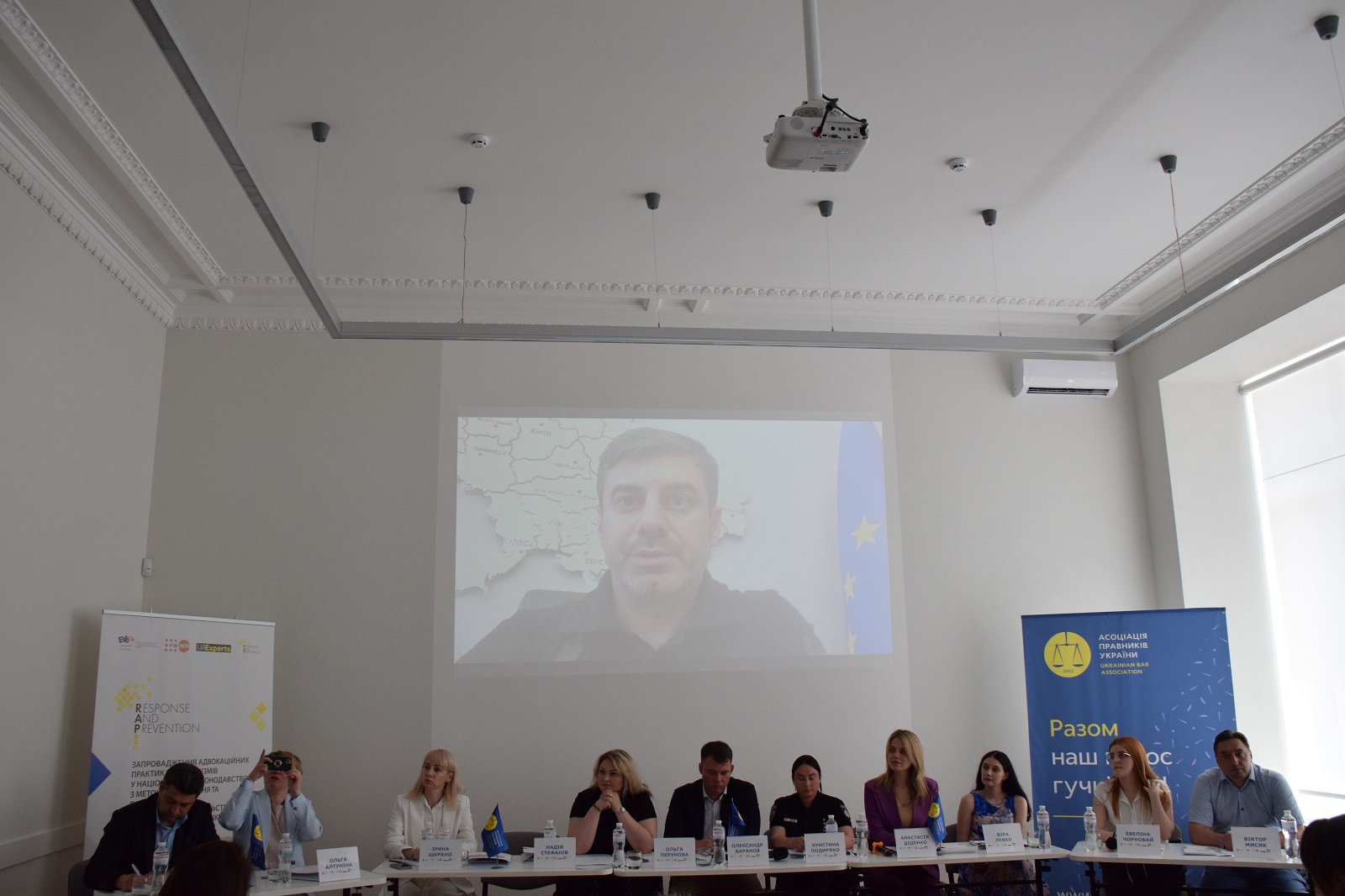
Mr. Lubinets noted that civilians in the occupied territories are the most unprotected, and the UN and the International Committee of the Red Cross, which must protect the rights of civilians in the occupation, do not fulfill their obligations under their mandate, referring to the reluctance of the Russians to grant them access to these territories. The same situation is observed in the issue of Ukrainian prisoners of war.
"We should not only raise this issue, draw their attention to these shameful cases, but also look for possible ways to get out of this situation," the Ombudsman emphasized.
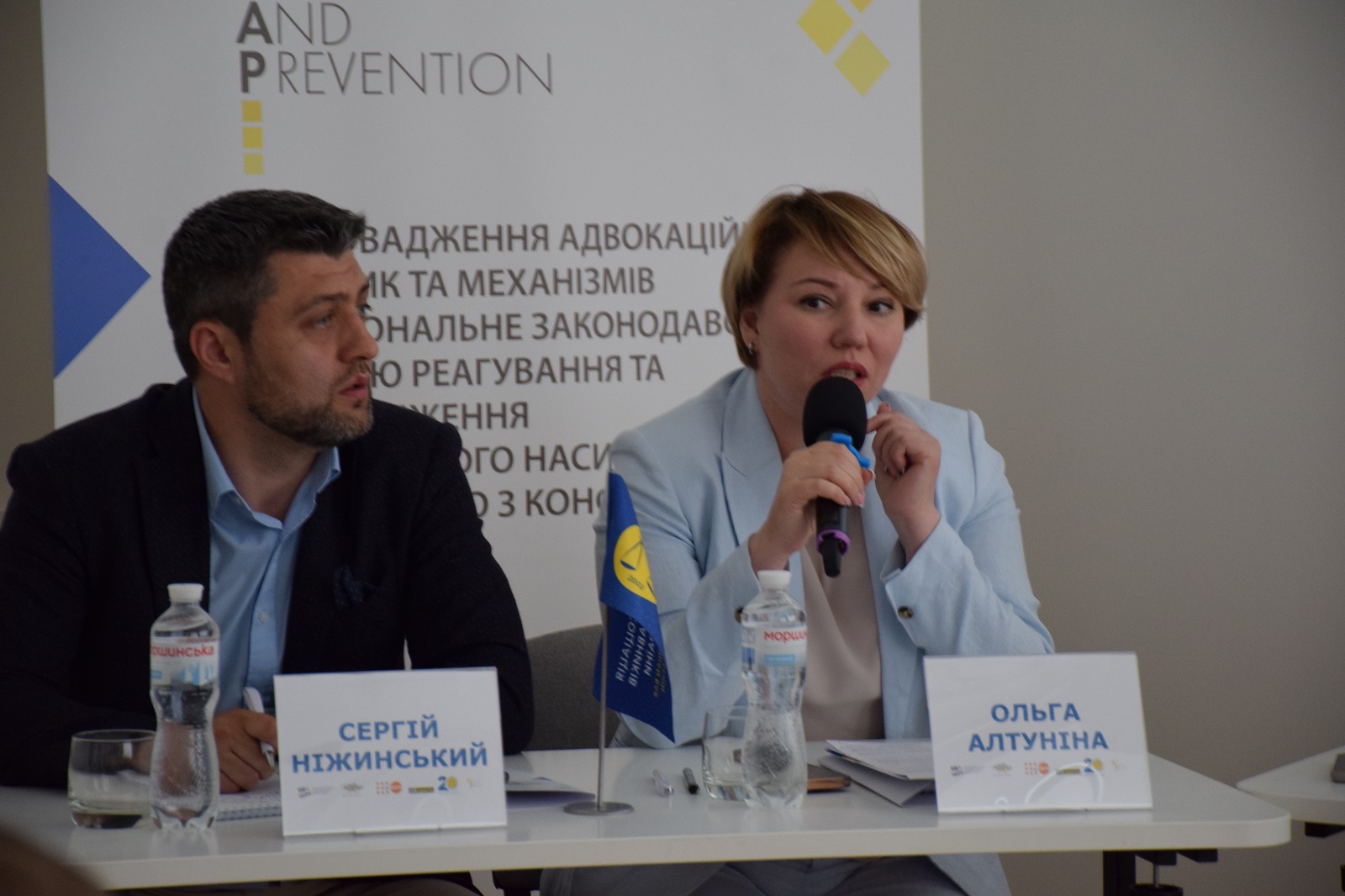
Olga Altunina, a representative of the Commissioner for the Rights of Victims of Armed Aggression against Ukraine, noted that after the end of the war, the country will learn about a large number of crimes, including sexual ones, committed by the Russians against Ukrainians. According to her, it is worth admitting that during the last eight years no one actually dealt with the topic of the crimes of the Russian occupiers, and only now has this topic become acute.
Evelina Chornobai, a lawyer at the NGO "La Strada-Ukraine", said that for people affected by violence who contact their NGO, the very fact of the call is traumatic, although the calls are anonymous.
"It is difficult for them to reach out and report [the violence]. They are afraid, they are afraid of society's condemnation, that they are somehow not like that... Second, they first of all seek psychological counseling: how to learn to live on with what happened to them, how to completely forget about everything," she said.
Ms. Chornobai added that La Strada-Ukraine representatives provide legal counseling to victims of violence less often than psychological counseling, because people still mostly do not understand what will happen after they appeal to law enforcement agencies, when the case is brought to court, and what kind of responsibility is provided in general (if we talk about sexual violence), and also simply do not believe that the law enforcement officers can help them.
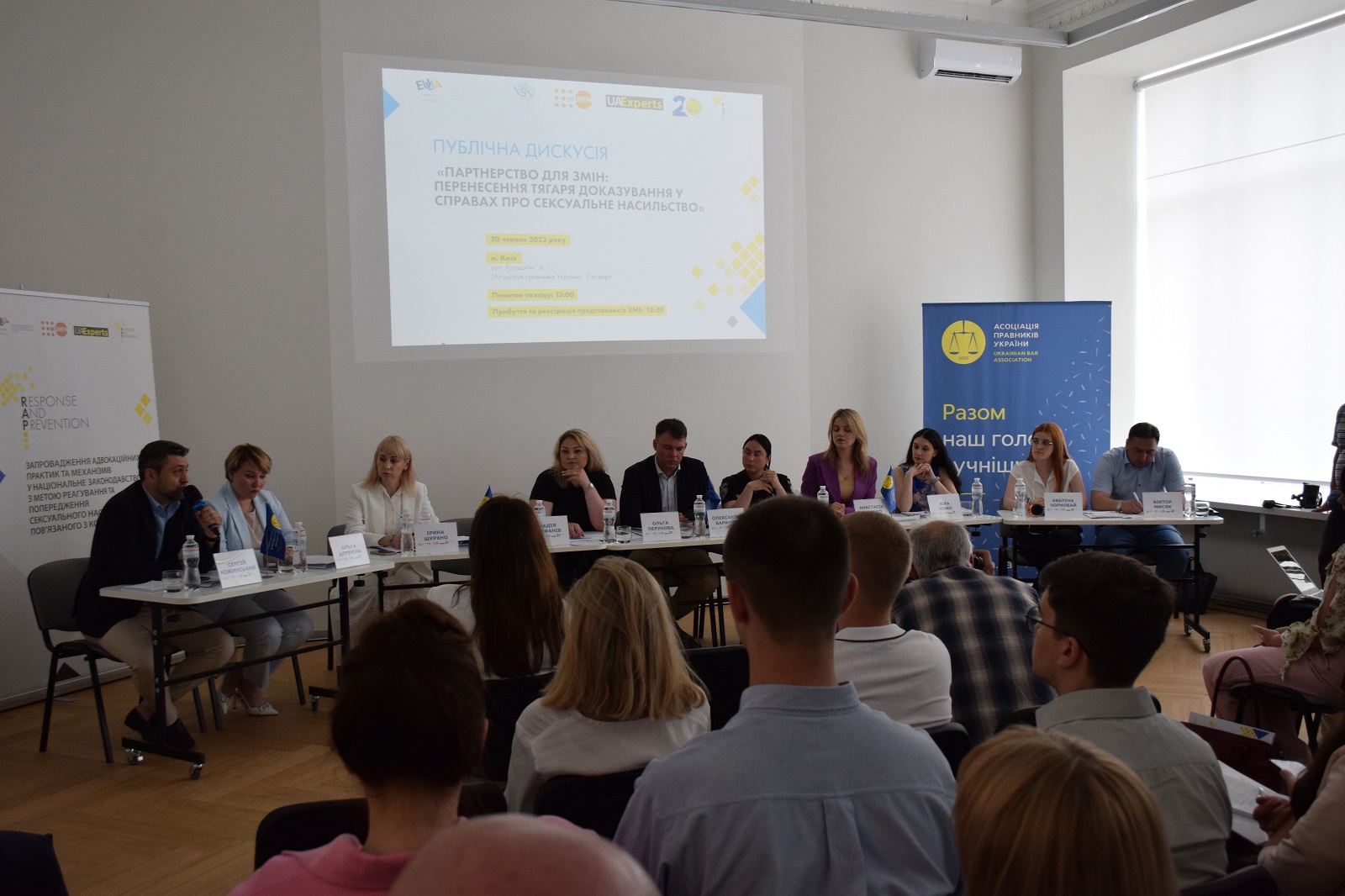
Oleksandr Baranov, Director of the Coordination Centre for Legal Aid Provision, said that a large information campaign is currently underway about what sexual violence related to the conflict actually is.
"We emphasize that victims can reach out and this crime has no statute of limitations. And at any time, they can take the plunge and consult a lawyer who can tell them what to do next," he stressed.
According to the results of an opinion poll, 45% of respondents believe that the problem of sexual violence in Ukraine is being silenced, while 40% have the opposite opinion, Mr. Baranov said. He added that 2% of those surveyed said they had experienced conflict-related sexual violence.
Khrystyna Kit, head of the Ukrainian Women Lawyers Association "JURFEM", emphasized that in cases of sexual violence related to the conflict, the victim does not bear any burden of proof, because it is a matter of public prosecution (Article 438 of the Criminal Code of Ukraine, "Violations of the laws and customs of war"), as opposed to crimes against sexual freedom and integrity, which are matters of private prosecution. The lawyer added that in the case of conflict-related sexual violence, there is a problem of confidentiality and the provision of the entire range of services to victims.
Iryna Shurkhno, Head of the Department for the Organization of Procedural Management of Pre-trial Investigation and Maintenance of Public Accusations in Criminal Proceedings Related to Domestic Violence, of the Department of Protection of Children's Interests and Combating Domestic Violence of the Prosecutor General's Office, provided statistics on criminal proceedings related to sexual violence in Ukraine over the past three years. Thus, in 2020, 740 criminal offenses related to sexual violence were registered (of which 487 proceedings, or 65% were brought to court), in 2021 — 930 (684 proceedings were brought to court, or 73%), in 2022 — 623 (382, or 61% were brought to court).
Ms. Shurkhno added that in the five months of 2023, 285 criminal offenses related to sexual violence were registered, of which 167 (58.5%) were brought to court. Of this total, 23 (8%) were related to domestic violence and 229 (70%) were committed against children.
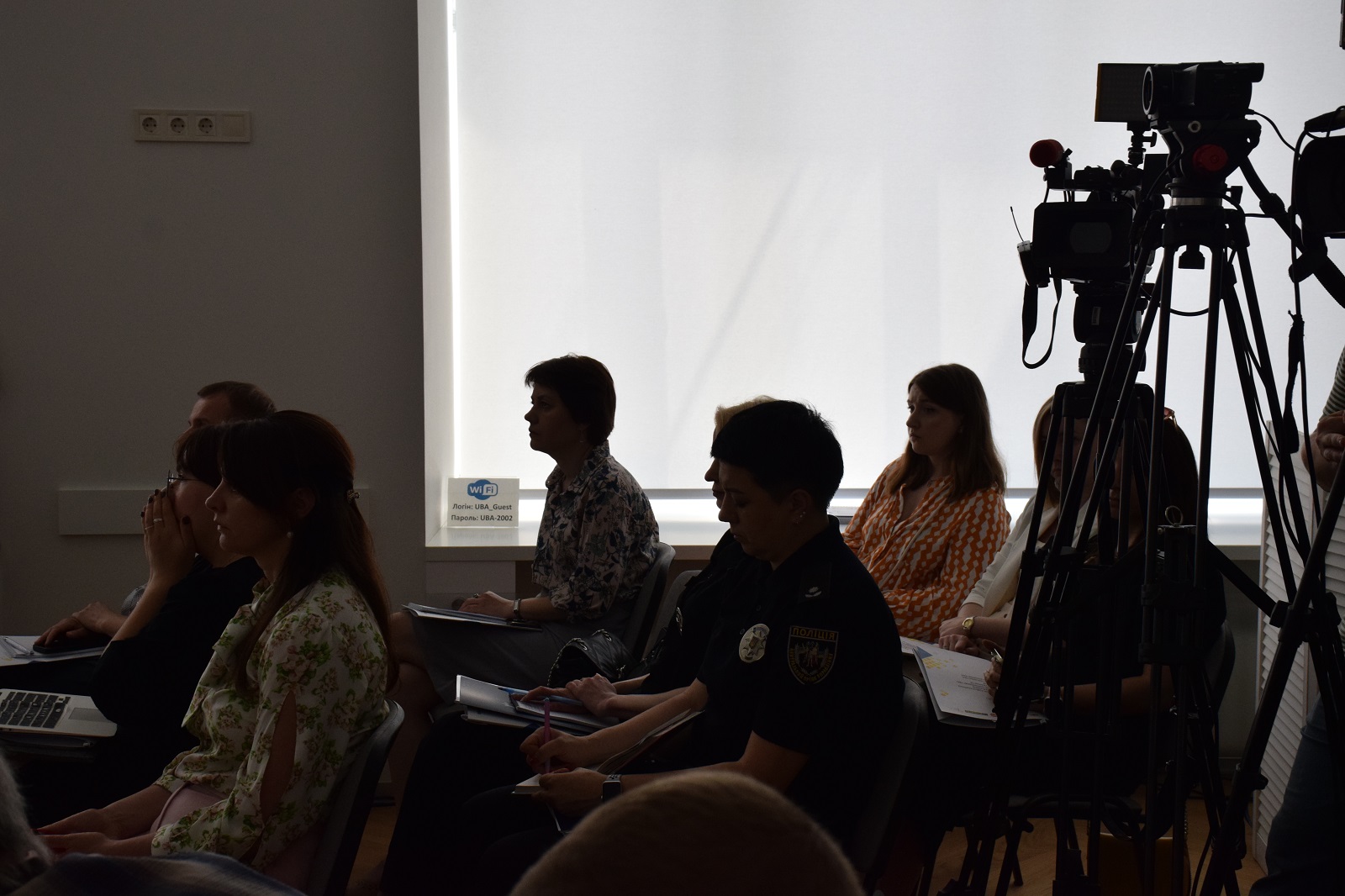
According to Iryna Shurkhno, if we compare five months of this year with the same period last year, we can state that the number of registered criminal offenses related to sexual violence has increased by 30%.
She added that as of June 1, 2023, 959 criminal offenses related to sexual violence are in the process of pre-trial investigation, of which 79% are criminal offenses from previous years.
Nadiya Stefaniv, judge of the Criminal Court of Cassation as part of the Supreme Court of Ukraine, emphasized that the problem of proof is important in all criminal proceedings and especially in those related to sexual violence. In her opinion, the main evidence in cases of this type should be the statements of the victims, which should be reduced to the minimum interrogation of such persons. With this in mind, Ms. Stefaniv proposed to amend Art. 225 of the Ukrainian Criminal Procedure Code to determine that victims of sexual violence can be questioned in a court session during a pre-trial investigation only once.
